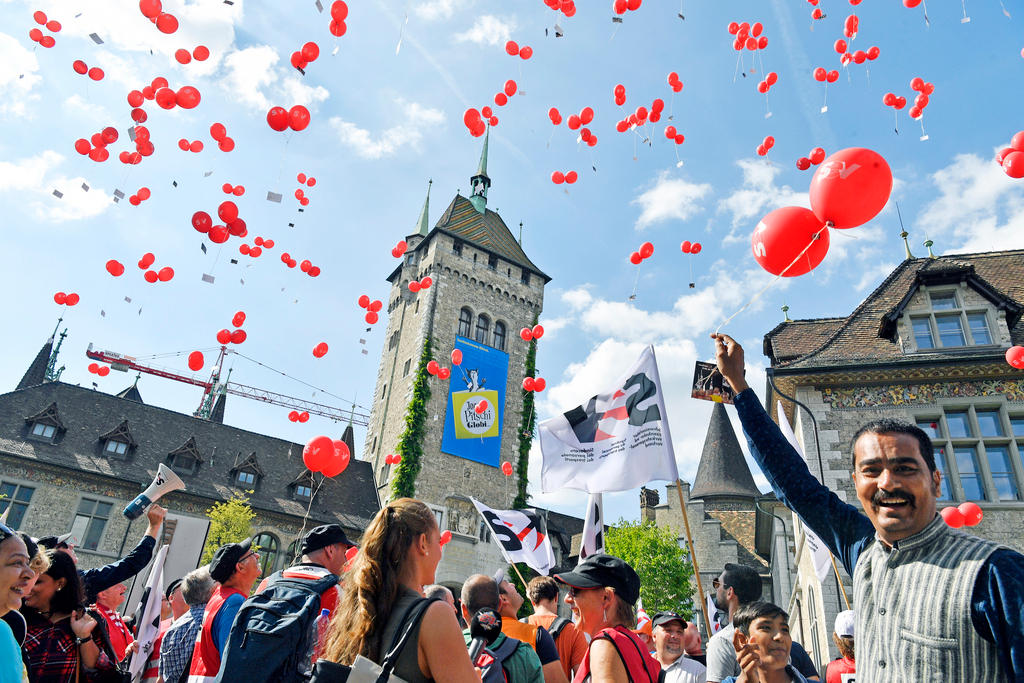
Rail workers stand against proposed cuts

Some 1,400 rail workers took to the streets across the country on Monday to protest a package of cuts and reforms planned by the Swiss Federal Railways.
The demonstrations, called for by the Union for public transport workers were spread across several Swiss cities: Geneva, Lausanne, Olten, Bern, and Zurich, where the largest event brought together about 350 workers in the late afternoon.
Though not an official strike, the gatherings passed off in a spirit of defiance, with the workers releasing balloons to which their demands – a softening of proposed wage cuts and liberalisation of firing procedures – were attached.
“Social regression is not negotiated, it is combatted,” was the message, referring to current negotiations between union and management around changes to the workers’ collective agreement.
The talks began in February and are planned to continue until September. The trade union promised further action if their position was not more considered.
“We are asking the Swiss Federal Railways management to come back to earth. As a public service business, it must act as an exemplary role model in the social domain,” said union spokesman Christian Fankhauser.
The proposed reforms come on the back of further recent cuts such as the so-called RailFit 20/30 package, which plans to get rid of 1,400 rail jobs by 2020.
Switzerland is renowned for its rail system – punctuality and range – which is consistently rated one of the worlds’ best. Swiss people also use the train as a form of transport more than any other country.
The Swiss government, through the Federal Office of Transport, is responsible for planning and funding national infrastructure, as well as projects it supports in neighbouring countries, notably France and Italy. It co-funds regional services with the 26 cantons.
The Federal Railways is the national operator. Since 1999 it has been a company operating on commercial lines, although all the shares are owned by the government.
There are also a host of regional operators. Train timetables are designed to interconnect with other forms of public transport, including “post buses” serving rural and remote mountain destinations not served by train.

More
Trains are taking the strain, even in Switzerland

In compliance with the JTI standards
More: SWI swissinfo.ch certified by the Journalism Trust Initiative




























You can find an overview of ongoing debates with our journalists here . Please join us!
If you want to start a conversation about a topic raised in this article or want to report factual errors, email us at english@swissinfo.ch.